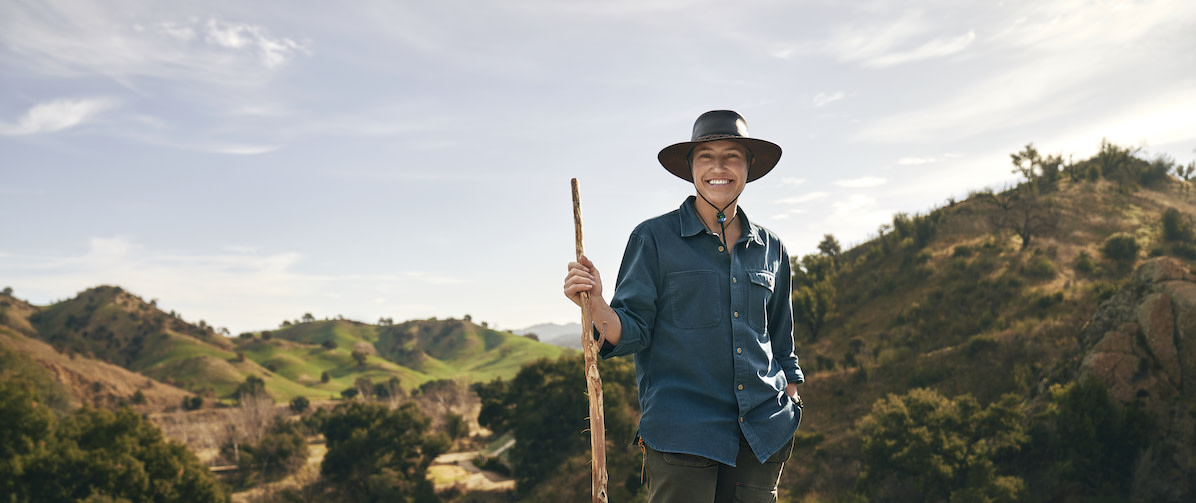Survival Expert Jessie Krebs on the Healing Power of Nature
Written by MasterClass
Last updated: Jul 15, 2021 • 3 min read
Survival skills matter, but most of the time, wilderness isn’t a threat to our lives—it’s the cure. Jessie Krebs’s work studying the psychological aspects of survival has put her at the leading edge of the movement to demystify the wilderness, promote survival skills as a tool for individual empowerment, and offer technical knowledge to those who are traditionally left out of wilderness education.
Learn From the Best
A Brief Introduction to Jessie Krebs
A unique combination of creativity, optimism, and sheer toughness has propelled Jessie Krebs to a storied career as one of America’s leading survival experts. She may have first entered the public eye with her televised crossing of the Tanzanian Serengeti, but as a former United States Air Force SERE (Survival, Evasion, Resistance, and Escape) instructor, she is a sought-after survival expert, lending her opinion to the likes of Fox and the Science Channel. She’s also the founder of SERE Training School, based in Denver, Colorado.
Jessie Krebs on the Healing Power of Nature
Across the United States, doctors are writing a prescription that can tackle everything from depression to hypertension, is eminently affordable, and has no negative side effects: Spend time in nature. Indeed, a massive body of research supports the idea that green spaces can be just as effective as pharmaceutical options. In one 2019 study from Japan, for example, researchers found that being in a forest for 15 minutes could measurably lower a person’s levels of the stress hormone cortisol. Another study, conducted by scientists at the University of Queensland in Australia, found that visiting a park for 30 minutes once a week was enough to get high blood pressure under control in 10 percent of participants.
From boosting the production of potential cancer-fighting cells to reducing some symptoms of cardiovascular disease, outdoor recreation can provide a host of research-backed benefits for our physical health. But the evidence is even more powerful when it comes to mental illness. Jessie can vouch for that—and not just because of her decade-long career in wilderness therapy.
“Infant and childhood sexual abuse were my oldest memories,” Jessie says. As a child, spending time in nature helped her find her identity and confidence beyond the confines of that painful past. Her experience aligns with what scientists have been observing for years: In 2018, researchers at the University of California, Berkeley noted, on average, a 29 percent decrease in post-traumatic stress disorder (PTSD) symptoms after rafting trips. Other research suggests that something as simple as a regular nature walk can be effective as part of ongoing treatment for addiction and depression.
Many researchers credit these results, at least in part, to a feeling they’ve defined as “awe.” This is a sense of wonder at the beauty of the outdoors that gives nature-goers hope and perspective on their lives. Scientists say awe can help participants break their cycles of negativity and stop their ruminating on the past.
For some people, it could facilitate critical self-analysis and, in turn, a sort of personal healing that becomes evident in the broader context of their life. As Jessie grew older, she says, wilderness trips helped her push at the raw edges of her memories and examine her fear and anger piece by piece.
“When a lot of us have trauma or pain, that can make our world very narrow,” she says. “But each time we push that boundary and we challenge our beliefs about ourselves, our trauma, our pain, we push that boundary out a little bit farther.”
Better yet, the wilderness can provide a safe, neutral space to get in touch with emotional trauma—a space free from human threat, judgment, and the all-seeing eye of social media.
“A rainstorm doesn’t care if I put on my makeup this morning. It doesn’t care what gender I am,” Jessie says. “The wilderness doesn’t care. Therefore, I don’t have to care. I can just be.”
Nature can also be an enormous source of inspiration. Jessie points to the new growth that sprouts after forest fires, floods, or even catastrophes caused by human error like the nuclear disaster at Chernobyl. Near the meltdown site, flowers and wildlife have already returned. The land has begun to heal.
“I’ve been hurt,” Jessie says. “You’ve probably been hurt. We can go through incredible trauma and pain and come out the other side, and we can still flourish. We can live through a lot of real, terrible things. And we can still blossom. We can still come back to life.”
Ready to Explore More of the Great Outdoors?
Prepare for any outdoor journey by grabbing a MasterClass Annual Membership and committing Jessie Krebs’s wilderness survival course to memory. As a former United States Air Force Survival, Evasion, Resistance, and Escape instructor, Jessie can teach you everything you need to know about packing for a trip (neon is the new black), purifying water, foraging (crickets: the other white meat), starting a fire, and signaling for help (forget SOS).
